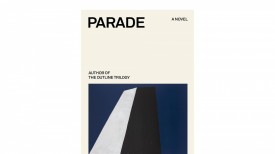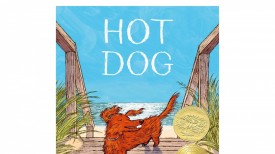'Dune' by Frank Herbert Book Review: A Clever Blend of Adventure, Fantasy, and Politics
The artful novel "Dune," by Frank Herbert, is a sci-fi classic that depicts the storyline on the desert planet, Arrakis. This novel tracks a young man named Paul Atreides, in later times known as Muad'Dib, and how he handles his familial aspirations embedded in the web of political intrigue.
A clever combination of adventure, fantasy elements, and political concepts, the novel has received high scores, won the Nebula Award, and shared the Hugo Award. Until today, it is one of the most sold and influential works in the science fiction world and bears inseparable systematic themes and events.
The Author
Herbert led a multifaceted life marked by curiosity and independence. Growing up in Washington State, his voracious reading habits and precocious intellect mirrored the character of Alia from his novel. Despite facing challenges, including rejection from publishers and financial instability, Herbert remained steadfast in his pursuit of writing what interested him.
His marriage to Beverly, a supportive partner and fellow writer, endured hardship. Together, they raised three children while navigating the tumultuous journey of Herbert's literary career.
Although there were some issues in the process of the release of "Dune," which to some extent did not fully demonstrate the author's genius, in the end, the novel received broad appreciation. It became Herbert's classic in sci-fi literature. 'Dreamer of Dune' depicts his life story, which shares a mixture of determination, creativity, and eternally enduring love.
READ ALSO: Exploring the Best: US Apple Books Top 10 Picks
Herbert's Timeless Masterpiece
A reviewer from Goodreads emphasized that Herbert's storytelling skill is unsurpassed, intertwining themes of power, myth, and the human condition to develop a classic novel that is equally stimulating and thrilling.
The novel takes the reader into a gloomy yet compelling reality. The atmosphere is as if the reader wandered into a manuscript of extreme significance. The deeper the story is revealed, the more elaborate and deeper Herbert's vision becomes, such that the readers cannot resist the fascinating narrative that is challenging and rewarding.
The readers explore the world of "Dune" in the era of political intrigue (power battles) and environmental scarcity (natural resources scarce), where the fight for control of power is one of the main themes. Meanwhile, in the environment, Herbert presents the reader with the most weighty issues of religion, politics, and ambition with such depth and profundity.
This story features a large cast of diverse characters, some simple and others having much depth, and they are all trying their best to make the world - with all its dangers and possibilities - somehow work for them. Although equally intriguing, Paul and Baron Harkonnen's characters are portrayed brilliantly and are impossible to take one's eyes off.
Moreover, the complicated plotline and the well-thought-out world construction reflect humans' power and how myths and beliefs are vital in most societies. Although the novel is based on science fiction, politics, and ethical questions, the author writes in a way that lets readers experience multiple levels of this resonance simultaneously.
The reviewer concluded that "Dune" is a grand speculative fiction classic that still holds readers' attention with its universal themes and futuristic imagination. Whether you are a science fiction enthusiast or just a person who likes to live in a well-imagined world, "Dune" is a read you must not skip if you want to feel its lasting impression.
Exploration of Power, Identity, and Environmental Consciousness
The Guardian claimed that the book addresses power, identity, and the ever-present consequences of human ambition. Paul's story, which ends with becoming a messiah, thoughtfully presents the issues of fate and sacrifice. In contrast, the environmental background of the novel warns us about the impact of extracting natural resources.
Unsurprisingly, the book took quite a while to be published. Still, over time, "Dune" became a cult classic, awarded for its sci-fi narrative, and inspired many generations. The message of the book, which is universal, that of ecological consciousness and mind-opening of a human being, keeps the book highly valued to this day, making it a classic sci-fi novel.
A Critical Reader's Assessment
A book review by E.F. Sunland stated that the book presents a conflicted reader's perspective, appreciating its complexities while finding certain aspects disappointing. Despite its acclaimed world-building and intricate political drama among noble houses, the narrative's pacing and writing style may deter some readers.
The reviewer pointed out that although powerful, the portrayal of female characters still operates within a patriarchal framework. The protagonist's journey as a chosen one is tempered by his fear of the consequences, adding unpredictability.
However, the book's weak prose and occasional unnecessary asides detract from its appeal, requiring perseverance to appreciate its depth. Yet, its timeless themes of power, resource scarcity, and intricate scheming ensure its lasting relevance in the science fiction genre.
RELATED ARTICLE: 5 Fantasy Book-to-TV Adaptations That Hit the Mark
© 2023 Books & Review All rights reserved.
Popular Now
1
Books to Read After 'Fourth Wing': Top Picks for Fantasy and Romantasy Fans

2
‘The Secret Public’ by Jon Savage Book Review: An Insightful Look Into the LGBTQ Influence

3
Stephanie Regalado's 'If They Only Knew' Column Is Now A Book, Unleashing 60 Anonymous True Stories to Empower Women

4
'No Wire Hangers' Scene That Almost Did Not Happen: New Book Reveals Faye Dunaway's Struggles

5
Rare First Edition of Aphra Behn's Novel 'Oroonoko' Discovered in Kent: A Historic Literary Find

Latest Stories
Book Reviews
‘The Secret Public’ by Jon Savage Book Review: An Insightful Look Into the LGBTQ Influence

Book News
Stephanie Regalado's 'If They Only Knew' Column Is Now A Book, Unleashing 60 Anonymous True Stories to Empower Women

Book News
'No Wire Hangers' Scene That Almost Did Not Happen: New Book Reveals Faye Dunaway's Struggles

Book Reviews
‘The Perfect Couple’ by Elin Hilderbrand Book Review: A Captivating Summer Mystery

Book News
New Book ‘The Franchise’ Reveals Penguins President Kyle Dubas’ ‘Biggest Mistake’ as Maple Leafs GM











